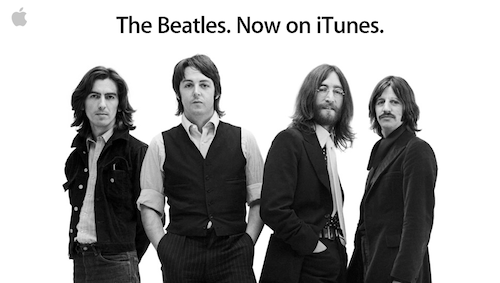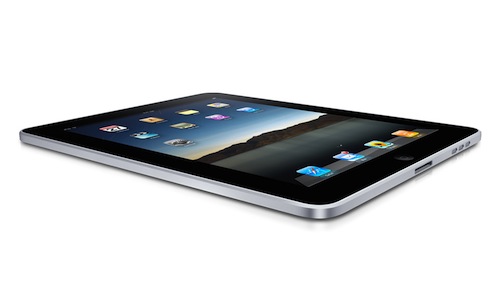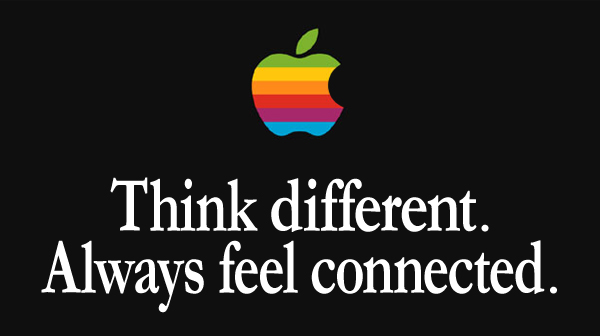Apple’s “exciting announcement from iTunes” was the availability of the Beatles’ music catalogue in the iTunes Store. No music streaming service, no subscription-based iTunes, no “iTunes in the Cloud”. It was “just” about the Beatles. Did hype take over our minds once again? Yes. But this time, Apple itself created the hype. Read more
Posts in stories
A Day To Re-Meh-mber
Mac App Store Name Squatters Already A Problem for Developers
Yesterday Apple opened app submissions for the Mac App Store, which as promised at the Back to the Mac event by Steve Jobs will be opening in less than 90 days – around February 2011. Developers can now submit their applications for Apple’s approval – something you want to do now as we still don’t know what policies Apple is going to adopt on the Mac.
When a developer submit an app for Apple’s approval, he has to pick up a name. But the App Store always had a problem with name reservations: developers were able to register a name, block it so no other developer could use it and never upload an actual application for approval. The name was there, frozen, but no app with that name was ever submitted. This practice is known as “name squatting”. After thousands of complaints by frustrated developers who had seen their app’s name “stolen” by suspicious individuals, Apple acknowledged the problem in mid-September and introduced a new policy: you can register an application name, but if you don’t upload anything in 90 days you’ll receive a notification informing you that in 30 days that name will no longer be assigned to you and it’ll be “unlocked” once again. With people sitting on unused names for 2 years, that was a quite welcome change. Read more
Zuckerberg Is Right, The iPad Isn’t Mobile
Mark Zuckerberg, at Facebook’s mobile event today in Palo Alto when asked if Facebook was building an iPad app:
“I don’t want to be rude to Apple – we all love Apple products – but this is a mobile event and we want to stay focused on that. The iPad isn’t mobile in the same way.”
This can mean quite a few things, so instead of opening Tweetie for Mac to write that the Zuck’s an asshole, let’s just think about the nature of the iPad as a device. We often refer to it as a “mobile device”; now I’m asking you to think of that 10-inch piece of aluminum and glass as a “device”.
Is it mobile? Read more
On iPhone, Android And People’s Perception
I was watching Chuck last night, and just like every episode recently aired I noticed there were many iPads and iPhones around. I don’t know if this is a trend amongst producers or Apple paying for product placement, but the thing is - Apple products are everywhere in today’s TV shows. I’m referring to “TV shows” as it’s the only kind of content coming from television networks I regularly consume nowadays.
So while I was watching and yet another iPhone showed up, my girlfriend - who is not exactly a “tech savvy” type - said: “Look, another iPhone 4”. The same happens every single time in the other shows we follow.
I also noticed, though, that there are other kinds of gadgets showing up every once in a while, namely non-Apple cellphones. They’re usually Motorola, HTC, Samsung Galaxy devices (I also spotted a Nexus One on Chuck) running, as you may guess, Android. I know those are Android devices, and when I see them I usually whisper “look, that’s an Android phone”. But I know those are Android devices, because I’m a geek who’s interested in technology and reads dozens of tech blogs every day. Do regular people notice these products at all? Read more
A Cloud Over The Mac App Store
Wayne Dixon over at Macgasm, about how app data will be backed up with the Mac App Store:
So this leads me to wondering something: how does the application’s data get backed up? Right now within the iOS App Store, your data is backed up when you sync your iOS device and this information is then backed up again when you backup your computer (you do backup your computer, right?). But if your application data is just stored locally and you do have to do a re-install of your computer, even though you are able to download the software itself again, your data may not be easily placed in the correct location, even with backups.
When Apple announced the iOS-like model for the desktop we didn’t really wonder much about how the backup model was going to be carried over to the Mac. Is it going to be carried over at all? On the current version of OS X (and on previous iterations as well) each app stores its data in various folders on the hard disk. Usually it’s the “Application Support” folder inside a user’s library, but preferences, caches and databases may be stored somewhere else. Not to mention the possibility to manually select a different destination for the main database in some applications, think of 1Password, Candybar and DEVONthink. Is the Mac App Store going to change this? Read more
Back to the Cloud
When I bought my first iPhone, I didn’t realize I would need the cloud someday.
By “cloud” we usually mean “online sync” nowadays. The possibility to keep different devices’ settings, email accounts, app databases in persistent synchronization. OmniFocus uses the cloud, for example. Simplenote is a cloud-based note taking application. Dropbox is the non-plus ultra of cloud-connected setups.
Then there’s MobileMe. Apple’s own sync infrastructure / online drive / web-based app suite that has managed to gain quite a few users over the years but, according to many, is still struggling to find an identity. What is MobileMe? Why does Apple keep on redesigning its web interface and doesn’t ship a major overhaul of the underlying engine instead?
OS X left the desktop and landed on the iPhone to gave birth to iPhone OS. Years later, iPhone OS evolved into the 2.0 version of Apple’s original mobile vision, iOS for iPhone and iPad. The once-OSX-now-iOS is going back to the Mac with Lion.
.Mac and iTools were tied to the Mac. The newly renamed MobileMe later approached the web and iPhone as lovechilds to keep safe and constantly connected. Two years after the introduction of MobileMe, it is time for Apple to go back to the cloud. Read more
Should Apple Allow Installation of iOS Apps From Other Sources?
The Mac App Store won’t be the only way to install apps on a Mac. As Steve Jobs confirmed at the “Back to the Mac” event, the Mac App Store will be the best way to discover and install apps, but not the only one. You’ll still be able to purchase apps directly from developers’ websites and run installers or .DMG files just fine. Can you imagine what could ever happen if Apple turned the Mac into an App Store-only “closed” system with no possibility to download software from other sources? After 20 years of regular installations?
So in a matter of a few months you’ll be able to install apps on your Mac in two different ways, and one of them will likely take over the other one in a very short period of time. If Apple understands the natural differences of the Mac from iOS and consequently adjusts the Review Guidelines in a way that developers won’t be forced to water down their apps, the Mac App Store will be huge. Both for users and devs.
Should Apple do the same on iOS? Read more
Mac App Store: What Do Developers Think?
The announcement of the Mac App Store caused mixed reactions between developers and users alike. We don’t know if the App Store will work on the Mac platform, where we’re all used to software licenses, developer websites and no restrictions, but it’s very likely that Apple will nail this one once again.
MacStories polled a few developers about the subject, and I collected some thoughts from around the blogs of other devs. Here’s what they think of Apple’s latest plan for the Mac. Read more
Think Different. Always Feel Connected.
Ah, my first editorial. I felt the need to write this after being at a small social gathering last Friday with a group of friends, none of them being Apple Geeks like myself.





